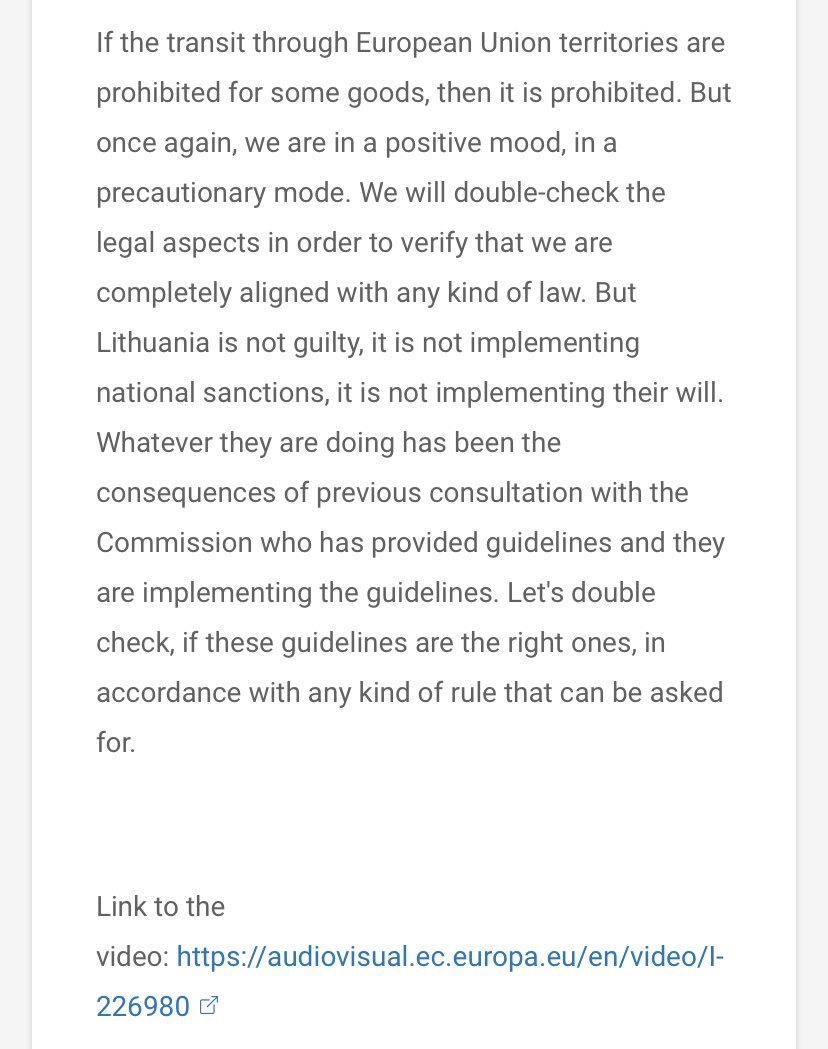
#EU_Russia: Borrell's statements about Lithuania's application of the sanctions regime sound disjointed and unconvincing in terms of preventing Russian pressure on Vilnius. He insists that Lithuania is applying EU sanctions (which is correct). They restrict the transport⤵️
to/from Kaliningrad of a very specific category of goods in transit through Lithuania. Borrell admitted that Vilnius has guidelines provided by the Commission, after consultations. After saying that, he suggests double-checking if the correct guidelines were given to Lithuania.⤵️ 



In addition, the head of EU diplomacy announced that he will double check the compatibility between sanctions and the law (probably hinting at the 2002 transit agreement with Russia). First, it is imperative that the EU see if there is any discrepancy between sanctions⤵️
and transit provisions (ideally tmr). Next, it is not enough to confirm that Vilnius is doing the right thing (this señf ). Obviously, it is necessary to have an emergency intelligence exchange between the EU and NATO and to prevent from Russian retaliation against Lithuania.⤵️
Once again, Borrell seems to be reacting in a rather confusing manner, instead of clarifying everything and guaranteeing security within the EU.
• • •
Missing some Tweet in this thread? You can try to
force a refresh







